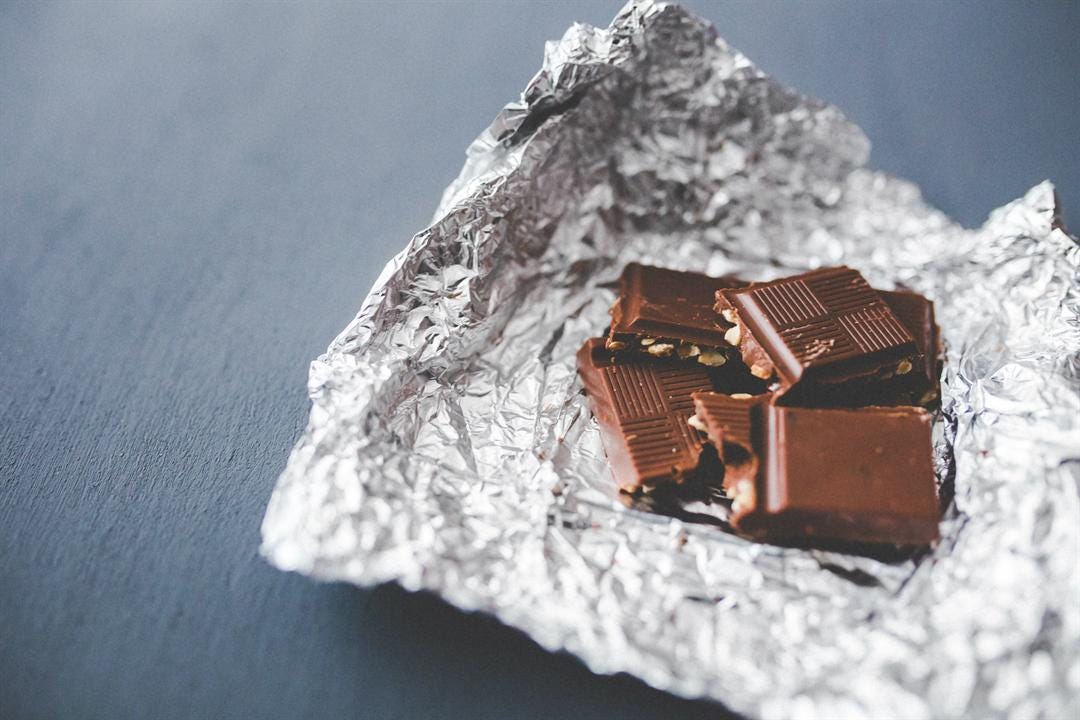Indy Startup Develops Ingredient for Guilt-Free Sweets
 The startup says products made with Epogee have 30 to 40 percent fewer calories per serving.
The startup says products made with Epogee have 30 to 40 percent fewer calories per serving.
Subscriber Benefit
As a subscriber you can listen to articles at work, in the car, or while you work out. Subscribe NowWith the arrival of the holiday season, fat-laden treats abound. But an Indianapolis-based startup believes it has the recipe to indulge without the health consequences. Choco Finesse LLC says it has developed “the revolutionary new fat replacement” that significantly reduces calories without sacrificing taste, texture or appearance. Now approved by the U.S. Food and Drug Administration and with a major chocolate manufacturer on board, the startup plans to take a bite out of the American food market.
“Think about an Oreo, French fries or potato chips and their nutritional profile,” says Choco Finesse President and founder David Rowe. “We’ve all had experiences with mediocre food with fewer calories, but imagine if you could deliver the exact same taste and texture [of full-fat food] with 30 to 40 percent fewer calories per serving—with no tradeoffs. That’s pretty much what we can do.”
Called Epogee, the fat replacement “tastes like fat, because it’s made from fat,” says Rowe. The process starts with GMO-free vegetable oil being divided into its components: glycerin and fatty acids.
“You pull apart the three chains of fatty acids, put in a little connector, and put it back together,” says Rowe. “That’s why it tastes like and works like fat in food; it’s a fat molecule that’s been tweaked. Essentially, you prevent the enzymes that break fat apart from working and releasing calories.”
The startup says the inserted link controls caloric release during the key part of digestion, allowing later breakdown. It’s high-level food science that Rowe says has been accomplished with a team of seasoned industry veterans. Rowe was global business leader at Indianapolis-based Dow AgroSciences, and Epogee’s collaborators include a handful of other Dow AgroSciences colleagues and retired scientists.
“It’s an amazing resource; we have some incredible scientists and engineers on the team,” says Rowe. “These are people I’ve worked with or colleagues of theirs. It’s a huge amount of capability and judgement.”
There are several versions of Epogee. The FDA approved the first iteration in September to be used in chocolates and coatings. Blommer Chocolate Company, the largest cocoa processor and ingredient chocolate supplier in North America, is using Epogee in its recently-launched Wonder Line Coatings, which it advertises as having significantly-reduced calories, fat and saturated fat.
The second version, also approved by the FDA, is geared toward baking, spreads such as peanut butter, dips, sauces and soups. The startup is collecting data now and plans to submit a third version to the FDA for use in fried products, such as French fries and potato chips.
The startup emphasizes that Epogee is backed by 17 years of research. Rowe says Best Foods and ARCO Chemical Company teamed up in the early 1990s to develop the technology. When both firms were acquired, the technology was shelved and, ultimately, donated to Kansas State University; Rowe says the school approached him about updating it and carrying it through product development and the regulatory process.
Fearful of being trounced in the marketplace, Best Foods and ARCO started the science behind Epogee as an answer to Procter & Gamble’s Olestra, a fat substitute that was marketed as Olean in the mid-90s. The flash-in-the pan product ultimately had to carry a health warning label after consumers reported negative side effects such as abdominal cramping.
While Epogee may conjure the same “too good to be true” reaction, the startup says Epogee and Olestra are a “night and day difference.” Rowe notes that Olestra is modified sugar molecules, whereas Epogee modifies fat molecules.
“We were taking the full knowledge of what [Olestra’s] problems were, and essentially, designing our technology so those problems would not occur,” says Rowe. “It’s an extraordinarily better technology than Olestra, and that’s one reason the FDA is so supportive of us.”
Noting “the need is greater than it’s ever been” with the U.S. obesity epidemic, Choco Finesse is now focused on finding more clients to adopt Epogee—aiming to make food’s guilty pleasure a bit more innocent.
“We’re one of the very few technologies and solutions coming forward,” says Rowe. “We think this is going to help a lot of people.”
Rowe says people can’t taste a difference between products made with Epogee and those made with traditional fat ingredients.
Rowe says the startup is confident it can scale up the product.
